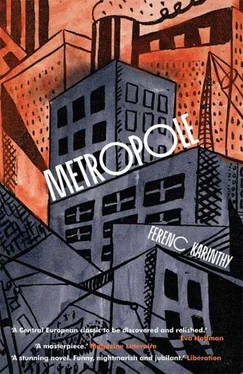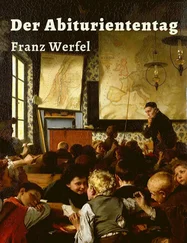He hadn’t seen any stars yet, the sky generally having been overcast, but fortunately it cleared for an hour the next evening. Budai had no great knowledge of astronomy and could identify only one or two constellations, the Pleiades, Orion and the Plough, from which last he had learned as a child to calculate the position of the pole star. After a brief survey he succeeded in finding them, which suggested that he was in the northern hemisphere, for he was pretty sure the Plough could not be seen in the southern one. But if he was on earth, at what longitude and latitude? He had never taken much interest in these matters and could remember only what he had read in children’s books and travelogues. He struggled to recall the proper method of calculating such data and tried to work it out through sheer intelligence. He got so far as to take midday here, that is the point at which the sun was at its height, and compare it with the time at home, that is if he had had his watch with him and had not adjusted it, and to calculate the distance from the difference, dividing twenty-four hours by 360 degrees, meaning that every difference of four minutes would signify one degree. He might, in other words, have worked out whether he was east or west of his starting point, but he had forgotten his watch. Without it the method of divining distance would be a matter of speculation, at best a matter of strenuous mental gymnastics. The most promising way would be to measure the angle of the pole star relative to the horizon, but in order to do that he would need specialist instruments — a sextant or a theodolite — and where would he find one of those? With his naked eye he could only guess the rough height of the pole star — if that indeed was the pole star — and compare it to its height at home. The two being roughly the same, he was left to conclude he was on roughly the same latitude. But where? In Europe? Asia? America? Or in some hitherto unknown part of the globe?
He had already considered the unpleasant climate and the ethnic diversity of the populace but it was hopeless trying to work anything out from that. There was nothing particular about the forms of dress here either, it was what you would find in most large European cities, just a little greyer and dingier on the whole, with a preponderance of uniforms. This reminded him that the black warder at the police station had been wearing the same kind of one-piece canvas boiler suit he had seen in many other places. Could it be that all those wearing similar uniforms, regardless of gender, were also guards and warders?
In the meantime there was the blonde lift operator going up and down. He tried to work out what shift she was working but was confused each time because sometimes she was there when he calculated she should be, at other times not and, conversely, just when he felt sure she would be off duty there she was again by the noisy opening door. They had got round to greeting each other by now and there were occasional signs that she was showing some interest in him too. Twice she addressed Budai as he was about to get out and he smiled and shrugged his shoulder by way of an answer to show he had not understood. The crowd in that narrow space gave no time for explanations and he was quickly swept away by the others getting off.
The next time they reached the ninth floor she put her hand on his arm to detain him and Budai finally understood that she wanted to take him somewhere. He remained in the cabin as it climbed floor by floor, slowly emptying, the numbers lighting up one after the other until they were on a much higher level. It was the top floor, the eighteenth, and by that time there were just the two of them. The girl opened the door and signalled for him to get out with her.
The layout was quite different here. There can’t have been too many rooms, not for guests at least. There were large white containers and tubes of various sizes and thicknesses, probably part of the building’s heating system or related to the lift mechanism along with cogwheels and steel hawsers. And there was a kind of cafeteria or bar, closed just now, probably only deployed in the summer when it was hotter, a kind of top floor tower restaurant with a vista surrounded by an open terrace, as far as he could tell through the locked glass doors.
The girl lit a cigarette and offered him one. Budai didn’t smoke and politely turned it down. She on the other hand was clearly a heavy smoker. She drew the smoke down hungrily and blew it out again as though she was well used to it. Smoking cannot have been permitted in the lift. She smiled at him somewhat apologetically as she smoked. Now that she was rested and relaxed, her face clear of exhaustion, her manner was easy, bright and careless. Her hair and make-up looked perfect. She did not try to force conversation, knowing it would be hopeless but did address a word or two to him.
‘Yeye tlehuatlan… Muula alalálli?’
She gave a soft, slow, melodic laugh, puffing out more smoke, her back propped on one of the containers. There was a buzz in the open lift, someone downstairs was calling it but neither of them moved. Budai pointed to himself and repeated his name a few times then pointed at her questioningly. She gave another laugh and answered with a two-syllable word. He didn’t quite catch it, and asked again.
‘Pepe? Tchetche?’
Her pronunciation was so odd it might have been Bebe, Veve, Gege, Dede or anything else: each time she said it, it sounded different, sometimes it even sounded as if it had three syllables — Edede or Bebébé , though this might have been merely a pet name or an inflected version of her proper name. There was constant buzzing by this time, hordes of people must have been waiting on the floors below. Her brief break over, she stubbed out her cigarette and Budai entered the lift with her. As they descended it filled up with passengers again wedging themselves between him and her so they could not see each other at all. Only once they had reached the ninth floor could their eyes meet and exchange a complicit glance of farewell.
It was light in the darkness: a thread, however narrow, that constituted a relationship, a connection, the first in fact since he had arrived here and, if he was careful not to lose it, that he might be able to follow out of this monstrous swarming labyrinth. Perhaps he would make a discovery that would startle the world and the time would come when, all things being equal, he might think himself fortunate to have found his way here, to have stumbled on it like an explorer. On the other hand he might simply have been fooling himself.
Whether he was or not, the fact remained that he had to carry through the tasks he had set himself now, the first of those being to make some estimate of the city’s extent. So next morning he set out early, got into the first metro that passed that way and rode to the end of the line where the whole train emptied. By that time he was wondering which way to go once he was above ground so that he would be moving away from the centre rather than back towards it. It seemed logical to note the direction of the track he had travelled on to make sure he would go the same way, though the exit routes from the platform were so complex and winding with corridors, stairs, bends and intersections that he was lost by the time he arrived outside and had to make a snap decision as to which unknown direction to walk down. In order not to get lost on the way back he drew little pictures in his notebook of the salient corners, crossroads and buildings as he passed them.
It was like all outer suburbs with endless stone walls, fences, chimneys, gasometers, wide and muddy streets, row on row of dull brick houses, a large factory in the distance, its roof jagged like a saw, its vast bulk silhouetted against the grey sky, the air smoky and sooty, bitter-tasting. Here and there he spotted a few grocery shops, some rag-and-bone tradesmen, and one or two general stores whose window displays were packed with dubious items. And wherever he went there were exactly the same dense crowds, no less dense than in the city centre. Could he have got on the wrong train? Did the rail network not extend to the city limits? Had the town outgrown itself? He wondered how it felt to have been born and spent all one’s life here. Perhaps they no longer noticed the overcrowding of every street, no longer cared about the eternal queuing and the terrible and degrading effect it was bound to have on their lives. Or could they no longer imagine anything else? Did they think it natural? Were they simply used to it? Is it possible to get used to something like this?
Читать дальше












